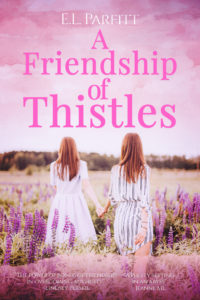
Living at the Boundary book review and thoughts.
‘It is a false question whether to repress or not to repress aggression. Since aggression is an indispensable ingredient of human makeup, we have to use it, to develop it into a valuable instrument for the management of our lives.’ (Laura Perls, Living at the Boundary, p43)
Substituing emotion
Although the quote above focuses on aggression another emotion could be substituted in its place. Our current frame of mind works on the forces of motivation behind our actions (suppressed or not). Perls’ chapter on ‘How to Educate Children for Peace’ raises some interesting ideas. I don’t agree with all of them.
For example, Perls discusses how the suppression of aggression could lead to intellectual inhibition with negative effects on critical thinking. She argues that by supressing children we are teaching them to surrender their insight and will to others. Her arguement is centered on extreme situations. I believe that there is a danger of suppression in an environment where home, school, society all act towards controlling a person’s identity.
Thankfully, there are other environmental factors to take into account that have an influencing effect on the mind: access to books, teachers, friends, family members, and the wider society. These all affect our mind and emotional intelligence as well as personality traits and IQ. Being exposed to different influences teaches us what is expected. Yet our mind is our own: we don’t have to agree with the status quo.
A driving force
However I think that controlling environments do have an emotional impact. Perls knows, as a psychologist, that emotion is part of human instinct, and how we relate to the world. Suppression could lead to the expression of emotion in explosive ways such as extreme violent behaviour, like rape. This can happen where the emotion is unable to be transformed because skills are not in place to know how to do so.
Often seen as negative, Perls points out that aggression can provide us with the impetus to get things done. It is a driving force in order to tackle problems and find solutions. It may even be used in ‘resistance against aggression’ by using its power to ‘build a strong conscience, as a means of directing these energies’ (41).
Encouragement
Perls’ words support encouraging the recognition, and support, of emotions in children and adolescents. An important life stage is when we come to realise that we have a choice when it comes to dealing with our feelings. Taking a step back is one of the reasons why Cognitive Behaviour Therapy and meditation work for so many people. If we did this through storytelling with children and adolescents, helping them recognise and transform their emotions, things really could begin to change. They are already. And it isn’t too late to begin the transformation as adults either.
Transformation through story
We learn to connect to and explore emotions through story. Tanith Lee in Red as Blood talks of love in its many misunderstood forms. For example ‘Beauty’, in Lee’s retelling of ‘Beauty and the Beast’ it is set in the future. The beasts are aliens from another planet. She writes of finding love, ‘Of the thing one has always yearned for. To be known, accepted, and so to be at peace. No longer unique, or shut in, or shut out, or alone’ (166). Lee covers many complex emotions, the yearning to be loved, and the understanding that it is when we find someone to love us as we are that we find peace.
This is in great contrast to Disney’s version of love. I love the magic and the music of fantasy animation while being wary that they spoon feed us into believing that one is only complete with another person. And it is usually an impossibly perfect specimen of the opposite sex. Sure, the sex drive is built towards the seeking of others for reproduction, but this is not the be all and end all for many people. For some it is the altruistic bonds we form that count, as culture and biology work hand in hand to create the individuals we become.
Folk tales, carry different messages. Folk tales usually allowing the ‘hero’ to recognise in his or her quest that happiness comes from within and love is found along the way by accident. Once we’ve found in ourselves what makes us content then this can be shared with another person. There are many different roads in life. Let’s hope for the wisdom and compassion to choose a good one.
Check out this narrative!
A Friendship of Thistles

A_Friendship_of_Thistles_3




0 Comments